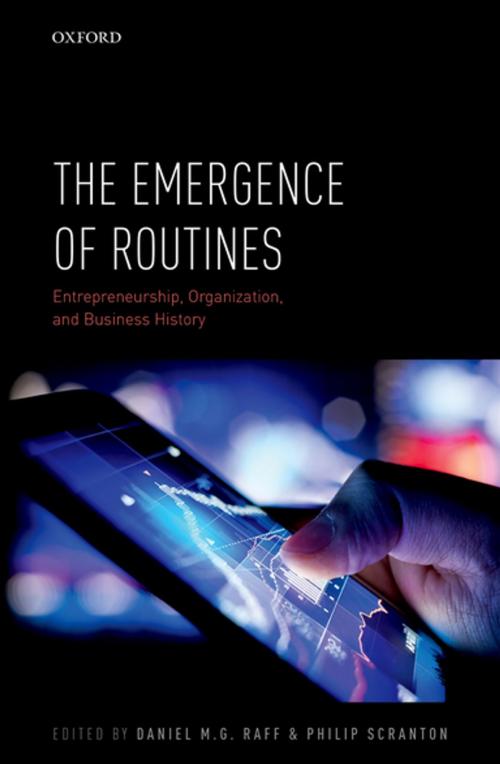The Emergence of Routines
Entrepreneurship, Organization, and Business History
Business & Finance, Human Resources & Personnel Management, Organizational Behavior, Management & Leadership, Planning & Forecasting| Author: | ISBN: | 9780191091728 | |
| Publisher: | OUP Oxford | Publication: | December 6, 2016 |
| Imprint: | OUP Oxford | Language: | English |
| Author: | |
| ISBN: | 9780191091728 |
| Publisher: | OUP Oxford |
| Publication: | December 6, 2016 |
| Imprint: | OUP Oxford |
| Language: | English |
This book is a collection of essays about the emergence of routines and, more generally, about getting things organized in firms and in industries in early stages and in transition. These are subjects of the greatest interest to students of entrepreneurship and organizations, as well as to business historians, but the academic literature is thin. The chronological settings of the book's eleven substantive chapters are historical, reaching as far back as the late 1800s right up to the 1990s, but the issues they raise are evergreen and the historical perspective is exploited to advantage. The chapters are organized in three broad groups: examining the emergence of order and routines in initiatives, studying the same subject in ongoing operations, and a third focusing specifically on the phenomena of transition. The topics range from the Book-of-the-Month Club to industrial research at Alcoa, from the evolution of procurement and coordination to project-based industries such as bridge- and dam-building and the governance of defence contracting, and from the development of project performance appraisal at the World Bank to the way the global automobile industry collectively redesigned the internal combustion engine to deal with after the advent of environmental regulation. The chapters are vivid and thought-provoking in themselves and, for pedagogical purposes, offer excellent jumping-off points for discussion of relevant experiences and cognate academic literature.
This book is a collection of essays about the emergence of routines and, more generally, about getting things organized in firms and in industries in early stages and in transition. These are subjects of the greatest interest to students of entrepreneurship and organizations, as well as to business historians, but the academic literature is thin. The chronological settings of the book's eleven substantive chapters are historical, reaching as far back as the late 1800s right up to the 1990s, but the issues they raise are evergreen and the historical perspective is exploited to advantage. The chapters are organized in three broad groups: examining the emergence of order and routines in initiatives, studying the same subject in ongoing operations, and a third focusing specifically on the phenomena of transition. The topics range from the Book-of-the-Month Club to industrial research at Alcoa, from the evolution of procurement and coordination to project-based industries such as bridge- and dam-building and the governance of defence contracting, and from the development of project performance appraisal at the World Bank to the way the global automobile industry collectively redesigned the internal combustion engine to deal with after the advent of environmental regulation. The chapters are vivid and thought-provoking in themselves and, for pedagogical purposes, offer excellent jumping-off points for discussion of relevant experiences and cognate academic literature.















